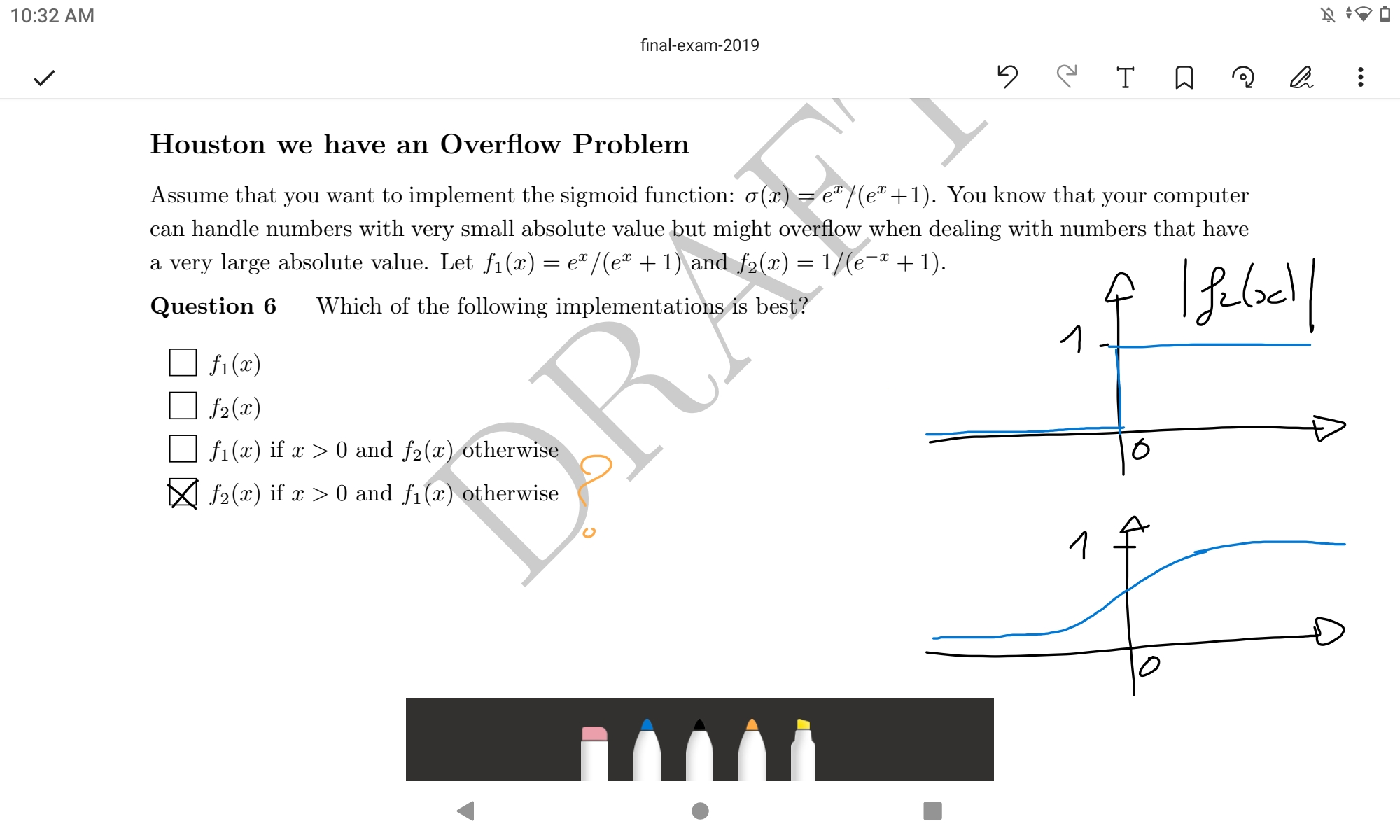If x >0 and is huge then \(e^x\) will be a very big number and we're given in the question that we can't deal with numbers that have a large absolute value. Hence \(f_{1}\) will run into exactly this problem and consequently it's not suitable. The same argument goes for x having a large negative value and \(e^{-x} \)
My understanding is that if x is > 0 and x is very large (x--> inf) then exp(-x) --> 0, but exp(x) --> inf. So computing f2(x) does not cause problems, while computing f1(x) might cause problems.
If x < 0 and x is very large (w --> -inf), then exp(-x) --> inf, but exp(x) --> 0. So computing f1(x) does not cause problems, while computing f2(x) might cause problems.
If x >0 and is huge then \(e^x\) will be a very big number and we're given in the question that we can't deal with numbers that have a large absolute value. Hence \(f_{1}\) will run into exactly this problem and consequently it's not suitable. The same argument goes for x having a large negative value and \(e^{-x} \)
Pb 6 exam 2019
Hi,
Could you explainwhy do we choose f2 for x positive and f1 otherwise?
I donkt get the thing about the absolute values,
Thank you so so much!
If x >0 and is huge then \(e^x\) will be a very big number and we're given in the question that we can't deal with numbers that have a large absolute value. Hence \(f_{1}\) will run into exactly this problem and consequently it's not suitable. The same argument goes for x having a large negative value and \(e^{-x} \)
1
My understanding is that if x is > 0 and x is very large (x--> inf) then exp(-x) --> 0, but exp(x) --> inf. So computing f2(x) does not cause problems, while computing f1(x) might cause problems.
If x < 0 and x is very large (w --> -inf), then exp(-x) --> inf, but exp(x) --> 0. So computing f1(x) does not cause problems, while computing f2(x) might cause problems.
If x >0 and is huge then \(e^x\) will be a very big number and we're given in the question that we can't deal with numbers that have a large absolute value. Hence \(f_{1}\) will run into exactly this problem and consequently it's not suitable. The same argument goes for x having a large negative value and \(e^{-x} \)
1
Add comment